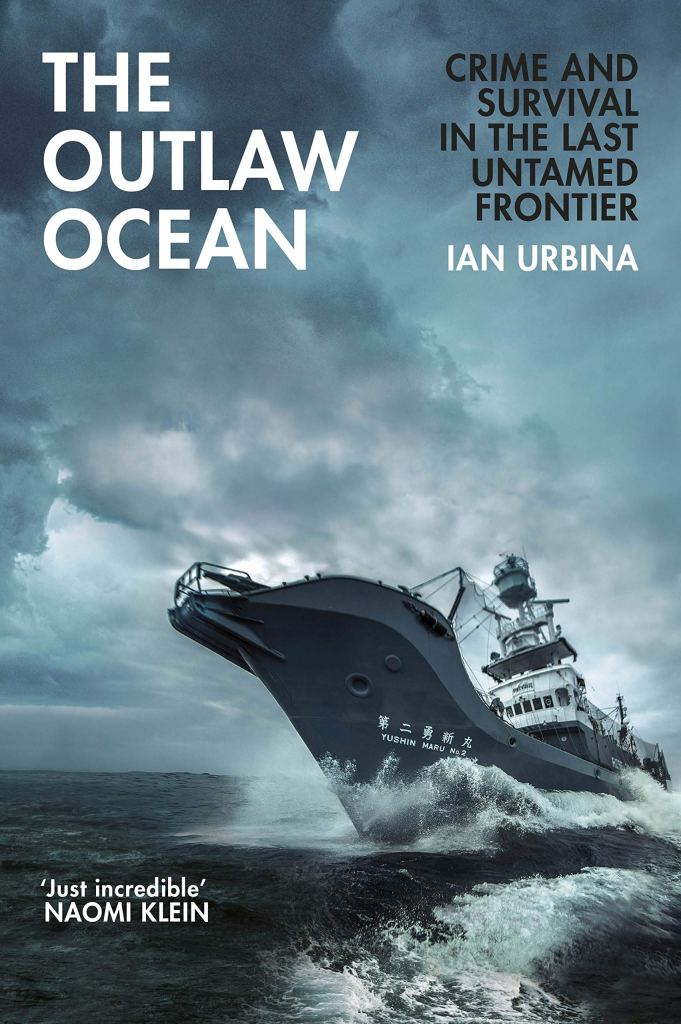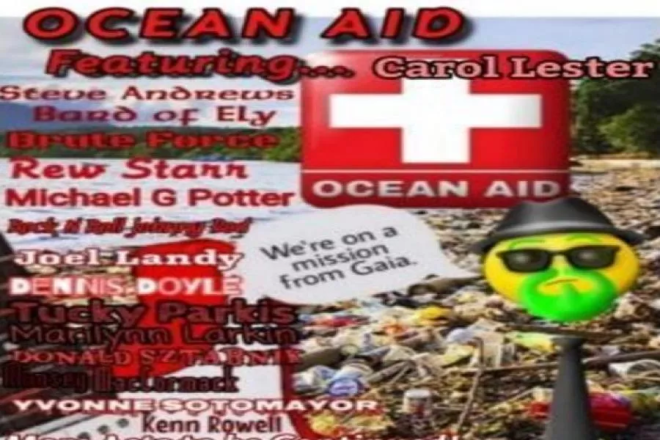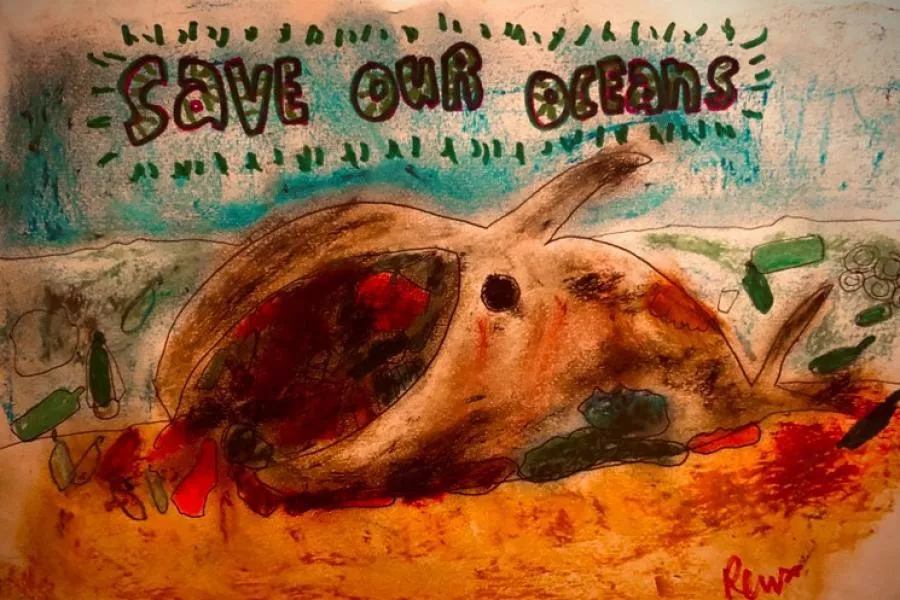by
How Ocean Aid concerts can help save the seas
Many people think of the planet we live on as Mother Earth, but I think we should also be using the name “Mother Ocean” when we talk about the sea. According to science, it is, after all, where life originated. The oceans are full of so many incredible life-forms, from the tiny plankton to the massive whales.
Seafood and fish have long been a very important part of our diet, and people have thought that we could go on catching fish in the oceans forever, that the oceans are so massive they can handle anything we humans use them for. Sadly, this includes throwing our waste products into the seas.
Today though, we are facing very serious problems all around the world when it comes to the health of the oceans. They were not as big as we liked to think. There are limits to what the oceans can cope with. Humans have been exceeding these limits, with overfishing, with the dumping of our waste products, and in many other ways. Many species of marine life are endangered, many are threatened with extinction.
Plastic pollution and Ocean Aid
One of the worst forms of waste that enters the seas on a daily basis is plastic. Plastic was made to last, and last it does. It may have appeared an incredible and revolutionary material when it was first invented, but no-one thought that one day it would present the human race with one of our greatest problems. Plastic does not decompose like all other natural substances but rather it breaks down into smaller and smaller pieces. The most minute of these we call microplastics. The larger items of plastic are being swallowed by sea creatures and seabirds, in many cases killing their unfortunate consumers. It has been estimated that plastics in the oceans, and on land too, will still be here in hundreds, possibly thousands of years. Plastic has become a killer and will continue killing.
With these grim thoughts in mind I wrote a song entitled Where Does All the Plastic Go? I am leading the way with songs on the subject of plastic pollution, but I also came up with an idea for an Ocean Aid concert or concerts. You will remember Live Aid; well, Ocean Aid is obviously following this event’s footsteps but with a big difference. Ocean Aid is about raising awareness about the many threats to the oceans and looking at solutions for these problems that affect us all. I actually hosted and performed at the first Ocean Aid concert on February 10 with many other musicians and singers on the bill. We were collecting funds for the marine wildlife conservation organisation Sea Shepherd.
But let’s take a look at some of the other serious problems faced by the seas and faced by us in addition to plastic pollution.
Overfishing

Overfishing, as we have already mentioned, and as the word itself suggests, means that humans are taking more fish and seafood from the oceans than can be naturally supported or readily replenished. Many species that are hunted, including most sharks and rays, are becoming so rare that they are threatened with extinction. The process of shark finning is a barbaric cruelty in which the living sharks are thrown back in the sea after their fins have been brutally ripped from them. No longer able to swim, they drown on the seabed.
Another terrible problem is being caused by the drift nets that are so huge they can catch an incredible amount of fish. Sadly they also catch many species of seabird and marine mammals too. Besides this, these nets, when damaged, lost or discarded, add to the plastic pollution of the oceans to a large extent. Bottom trawling means ripping up the seabed that has taken many years to become established. This method of harvesting from the seafloor takes an underwater scene of great beauty and leaves a trail of devastation in its wake. These methods of fishing are bad enough in themselves but they also create vast amounts of bycatch — unwanted marine life or individual creatures that are too small to keep. The bycatch often dies after being hauled on board and is thrown back where it came from.
These are just a few examples of the problems being created by overfishing, and while it is easy to blame the people who do this — to satisfy the wants of the fish and seafood eaters of the world — it is often not realised that there is a terrible human-rights issue connected with this too. Many of the crews of the trawlers are victims of abuse, human trafficking and may well be unpaid prisoners on board ships they cannot escape from. These ships are crewed by men who came from seriously deprived backgrounds, often in Asia, to begin with. They become modern slave labour. Ian Urbina, in his brilliant book The Outlaw Ocean, examines and exposes what is really going on on the high seas.
Acidification

Just as there is a problem of acid rain inland, there is a very real problem of the acidification of the waters of the oceans too. There is far too much carbon dioxide in the atmosphere, and when it is absorbed by water it becomes carbonic acid. Many sea creatures have shells, and shells are weakened and dissolved by acids in water. Not only the obvious marine molluscs such as whelks, winkles, cockles and mussels need to be able to obtain calcium from the seawater to build their shells but so do many tiny plankton, as do larger crustaceans too. Acidified seas are having a very damaging effect on marine life and are adding to the dangers that threaten coral reefs.
Speaking of reefs, Australia’s Great Barrier Reef has been suffering terrible bouts of coral bleaching. This happens when the waters become too warm, and this is happening increasingly due to climate change. It causes the single-celled algae that live inside the coral polyps to be expelled. These micro-organisms can re-enter the corals if conditions return to normal, but if this doesn’t happen soon enough, the coral can die.
Seabed mining
While many people have been rightly protesting about the drilling for oil and gas inland and about fracking for natural gas, mining of the seabed is another serious threat to the oceans. There have already been far too many oil spills from tankers that have run into trouble while transporting oil. Drilling in the seabed is simply asking for trouble. It has been well established that we should be cutting down on our use of fossil fuels because their usage is contributing to the climate crisis by adding to the greenhouse gases, so why are the seabeds being mined for them? Money is the answer, as always!
Nuclear waste
Perhaps you don’t think of nuclear waste as a problem when considering marine life but unfortunately several nations have dumped radioactive waste into the seas. As well as this, there is the ongoing problem of the contaminated water from Japan’s Fukushima reactor being discharged into the Pacific. Again the oceans have been used as a dumping ground.
Radioactive contamination of the seas is happening around British coastlines too. In Wales there has been the potentially serious problem of plutonium particles entering the Bristol Channel from Somerset’s Hinkley A and B nuclear power-station reactors. In an online talk with Welsh politician Neil McEvoy, Professor Keith Barnham has shown that these particles have been leaked in discharges from the power station. McEvoy, Cian Ciaran, of Super Furry Animals fame, and many others have been protesting about the dredging of mud from near the power station and then dumping it near Cardiff.
This is being done as part of the work for the construction of Hinkley C. Protesters have been calling Cardiff Bay “Geiger Bay”, highlighting the danger of the “radioactive mud”. In 2018, a lot of this mud was dumped in the sea despite protests. Obviously if there are radioactive particles in the mud, they are going to be swept along the coast by the tides. According to a BBC report, it now looks as if the unwanted mud is going to a site off Portishead on the English side of the channel. If the mud does contain plutonium, surely it shouldn’t be dumped anywhere off the British coast?
Military tests and sonar

Military testing and the use of military sonar is yet another threat to ocean life. As if whales don’t already have enough problems with plastic pollution and scarcity of their food, the use of sonar waves by the Navy can really distress these animals. A report by Jack O’Donovan for the Marine Conservation Society states that sonar technology can have a “sudden impact on beaked whales over 25 miles away from its source.”
The explosive underwater noise of sonar disturbs the sensitive hearing of the marine mammals, causing them to stop feeding, to swim away and to dive very deep in their panic. Navy sonar is employed at times in underwater research for the oil and gas industry, and this testing can go on for weeks at a time. It is thought that the use of military sonar causes whales to become so alarmed that they end up beaching themselves. Far too many whales are dying after becoming stranded on beaches.
What can be done to help save the seas?
Because the oceans and the marine life they support are in danger worldwide, the more of us that can take action the better. Everybody can do something to help turn things around. We can all think about our plastic usage and reduce it, as well as recycling the items we do buy or reusing them.
We can help cut down on the number of fish being caught by reducing the amount of fish and seafood we eat or, better still, stop eating these foods. Actually, eating fish is no longer a healthy option as it can be contaminated with mercury as well as microplastics — motivational speaker Tony Robbins became seriously ill with mercury poisoning after eating a regular diet of tuna and swordfish.
There are beach clean-ups we can take part in, and there are a number of charities that are working hard at saving the seas. Two of the most notable are Greenpeace and Sea Shepherd. There may well be local groups we can get involved in too. Let’s all take action to save Mother Ocean!
If you’d like to hear more about Ocean Aid please contact me: bardofely@gmail.com
Steve Andrews

Also known as The Green Bard, Bard of Ely, and Green Beard, Steve is an iconic figure who has featured in books, on radio and television, and also in film. He is, in his own right, a musician, a writer, a lifelong environmental activist, a sometime television presenter, a poet, a Britain’s Got Talent feature act, and a champion fighting against climate change, the destruction of trees, and plastic pollution. His power animal is the butterfly, several species of which Steve rears and nurtures in his spare time. Steve is based in the UK and Portugal, but has fans all over the world. https://www.bardofely.org/
You can buy Steve’s new book Saving Mother Ocean here.
More on Steve Andrews by CJ Stone:-
Whitstable Views: How You Can Help
- Make sure you share and like our articles on Facebook and Twitter, and whatever other social-media platforms you use.
- Follow the site to get regular updates about new articles when they appear. Press the “Follow” icon in the bottom right hand corner of your screen and that will take you to the option to sign up. (It disappears as you move the text down, then reappears as you move it back up again!)
- Leave comments on the site rather than on Facebook. Let’s get a debate going. All of our contributors are willing to engage with you if you leave a comment.
- To all writers out there, we would LOVE you to make a contribution. Read our submissions page for details on how to go about that: https://whitstableviews.com/submissions/
- Finally you can donate. As little as £1 would help. Details on the donations page here: https://whitstableviews.com/donate/
